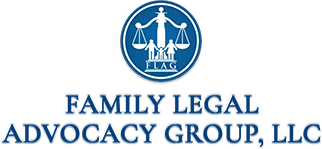When a child is sick, parents go to doctors looking for a diagnosis, prescription or treatment plan. Sometimes they find conflict.
Such cases are rare, but the plight of Charlie Gard, the 11-month-old with a devastating mitochondrial disease who died Friday in the United Kingdom, has reminded the world that doctors and parents don’t always agree, sometimes with heartbreaking results.
Closer to home was the case of Parker Jensen, the Utah teen whose parents were charged with neglect and kidnapping in 2003 after they refused chemotherapy for him and fled to Idaho.
The Gard case has resonated with millions of people around the world, in part because it involves what seems to be the most basic of parental rights and responsibilities: the ability to make final decisions concerning the health and welfare of your minor children.
“We’ve had no control over our son’s life and no control over our son’s death,” the child’s mother, Connie Yates, said Thursday, the day before Charlie died in hospice, against his parents’ wishes.
Charlie’s plight also highlights a cultural shift that is occurring, as people emboldened by medical information on the internet are more likely to challenge their doctors than in generations past.
“My mother, who was perfectly willing to question people, never questioned the doctor because he was a doctor. That’s changed,” said Dr. Paul Offit, a pediatrician, author and professor at the Perelman School of Medicine at the University of Pennsylvania.
Challenging a doctor can be time-consuming and expensive. Charlie’s parents fought the Great Ormond Street Hospital in court for months before abandoning their fight to have their son moved elsewhere for treatment.
Refusing to comply with a doctor’s orders can also get you charged with medical neglect, as happened with the Jensens, of Sandy, Utah, who didn’t believe their son had cancer.
Parents also run the risk of being wrong. Health officials fear the growing number of Americans who refuse to vaccinate their children may cause once-vanquished diseases to return. In London, doctors told Charlie parents that keeping the baby on a respirator for experimental treatments could cause the child pain.
What are your rights as a parent if you disagree with what a doctor recommends? The answer depends on where you live, how sick your child is and how sick she might become if you ignore the doctor’s recommendation.
‘The child first and always’
The British health care system has been called the best in the world, and the motto of the hospital where Charlie was treated, Great Ormond Street Hospital for Children, is “The child first and always.”
That policy was at the heart of the hospital’s argument for ending life support. Doctors said the mitochondrial disease Charlie was born with last August destroyed his brain function and left him able to do nothing but experience pain.
“As the weeks have passed, the unstoppable effects of Charlie’s aggressive, progressive, depletive disorder have become plainer to see,” the hospital said in court filings July 24, adding that the hospital’s position is “that every day that passed was a day that was not in his best interests.”
The “best interests” argument is one of nine ethical frameworks commonly used by doctors and hospitals seeking to override dissenting parents, according to Rosalind J. McDougall and Lauren Notini, whose literature review on the topic was published in 2013 in the Journal of Medical Ethics.
The others include the risk of imminent and significant harm to the child; the balance of costs and benefits; the capability of a minor to make a decision he “will still own” later in life; the availability of reasonable alternatives from which to choose; the rationality of the parent; and “constrained parental autonomy” — the idea that “families have group goals, distinct from the self-regarding goals and interests of each member.”
According to McDougall and Notini, physicians have no authority to override a parent; they can only ask the state to do so.
“There is a substantial consensus among ethicists that harm is the central moral concept when judging the appropriate threshold for state intervention in parents’ medical decision-making,” they wrote. “The much more controversial area seems to be responding to disagreements that fall below that threshold.”
Most hospitals have ethics boards that wrangle over life-or-death issues, said Dr. Jeffrey R. Botkin, professor of pediatrics and chief of the Division of Medical Ethics and Humanities at the University of Utah. But usually, when parents and physicians clash, it’s over care that a doctor may consider substandard but doesn’t rise to a level that requires state intervention.
“For the most part, clinicians, however reluctantly, recognize that parents can make bad decisions. It’s frustrating, but only when the parents’ decisions are clearly threatening the child’s life, at that point a claim of neglect might arise,” Botkin said.
‘Doctors are human, too’
In 2003, Daren Jensen and his wife, Barbara, made a decision they believed to be right: to refuse to subject their then-12-year-old son to chemotherapy for a small growth under his tongue. A doctor had diagnosed Ewing’s sarcoma, a rare type of cancer most often found on the arms and legs, but the couple — and their son — didn’t believe he was sick. They contend that the doctor wanted to enroll their son in a clinical trial he was conducting on the disease.
When the Jensens refused to comply with the doctor’s orders, he filed a complaint with the Division of Child and Family Services, which then got a court order to take custody of Parker and start treatment. Before that could happen, the Jensens moved to Idaho with their children, leading to charges of kidnapping and interference with a custody order.
The charges were later dismissed, but the couple spent more than $2 million on legal representation and Daren Jensen was jailed for four days. Although the family is still struggling to recover financially, Jensen says today that he wouldn’t do anything different. His son, now 25 and married, is healthy. “He isn’t sick. He was never sick,” Jensen said.
Jensen said he hadn’t followed the Charlie Gard case, but over the past decade, he has talked with about 400 people who have sought his advice about disagreements with doctors, most often in cases involving cancer treatments.
“Taking the doctor’s word for it is the worst thing you can do,” he said. “I’m not saying to discount it, but you have to verify, and you have to get a valid second opinion. Doctors are human, too.”
Although Americans usually rank medicine as the most prestigious of professions, one 2016 report said medical mistakes are the third-leading cause of death in the U.S.
A world full of experts
In a study published 10 years ago, Dr. Diana Palmer, now a pediatrician at Boston Children’s Hospital, examined the beliefs that physicians hold about antibiotics and compared them to the beliefs that parents hold.
Her research showed how parents and physicians can disagree even on something as relatively minor as when a sick child should be medicated.
In Palmer’s study, 14 percent of parents said they thought their child should have an antibiotic, and the doctor didn’t prescribe one. Nine percent believed their doctor had prescribed one unnecessarily, and 18 percent said they had given a child an antibiotic at home without consulting a physician.
Physicians who were interviewed also noted sources of conflict. Seventy-one percent said that four or more times in the previous month a parent had requested an antibiotic when the doctor believed it unnecessary. Sixty-one percent said parents requested a different drug than the one the doctor was going to prescribe. In nearly one-third of those cases, Palmer found that the doctors acquiesced to the parents’ requests.
Offit said such capitulation to parents’ wishes occurs increasingly because young physicians are being taught to defer to patients, and their parents, “in the name of being open-minded.”
“The current crop of medical students and doctors are very slow to confront people if they have an attitude or belief that puts their child at risk,” he said, even though people are increasingly challenging doctors based on erroneous information.
“People believe that by Googling the word ‘vaccine’, for example, they know as much as anybody giving them advice. They’ll say, ‘I’ve done my research.’ But what they mean is they’ve gone on the internet and read other people’s opinions about whether you should get the vaccine for chickenpox.
“That’s not research,” he said, adding “everybody believes they can be an expert.”


